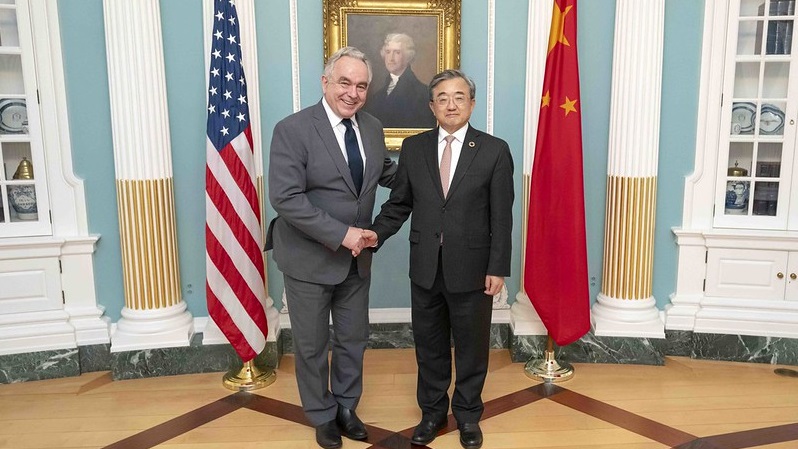The measures are designed to increase the cost of Chinese goods needed for the energy transition – and could therefore slow the US shift away from fossil fuels
Five days after seemingly cordial US-China climate talks, US President Joe Biden has announced he will increase US tariffs on Chinese solar panels, electric vehicles (EVs) and batteries to run them.
Last Wednesday and Thursday, China’s new top climate diplomat Liu Zhenmin travelled to Washington DC for two days of talks with his US counterpart John Podesta, also fresh in the job.
They discussed co-operation on climate issues, including plans for both sides to ramp up renewables, and vowed to “intensify technical and policy exchanges”.
But the day after, with Liu still in the country, the US State Department briefed journalists that Podesta had told Liu that China was producing too many solar panels and lithium-ion EV batteries.
India wants its own solar industry but has to break reliance on China first
Then on Tuesday, the White House increased tariffs on Chinese EVs, lithium-ion batteries and solar panels, accusing the Chinese government of “unfair, non-market practices” and “flooding global markets with artificially low-priced exports”.
“Clear protectionism”
In response, the state-owned China Daily newspaper in an editorial described the tariffs as “a clear act of protectionism”.
The head of the China Automobile Association Fu Bingfeng agreed, adding that “the new energy industry is jointly created by mankind and can bring common benefits to mankind”, saying the tariffs were “very unreasonable”.
Asia Society analyst Li Shuo told Climate Home that, rather than thinking of over-supply of solar panels as a problem, “it is the world’s inability to deploy these products that is the problem”.
Lithium boom: Zimbabwe looks to China to secure a place in the EV battery supply chain
The tariffs reflect “the new reality global climate politics needs to deal with” – that low-carbon products will not be made in the most cost-efficient way and distributed around the world, he explained. India also has trade barriers against Chinese solar panels, designed to boost its domestic solar manufacturing.
Research from the Center for Strategic and International Studies has found that such trade barriers can, in general, delay the competitiveness of low-carbon technologies against their market rivals – like solar against gas, or EVs against internal combustion engines.
Limited effect on solar, batteries bigger
The US-imposed measures are designed to increase the cost of Chinese goods needed for the energy transition – and could therefore slow down America’s shift away from fossil fuels.
But BloombergNEF solar analyst Jenny Chase told Climate Home that the increase in the tariff on solar cells and modules from 25% to 50% would “have little effect”.
She noted that tariffs of 25% have been in place “for ages – and as a result the US imports almost no cells or modules directly from China, instead importing from Southeast Asia”.
In Nagorno-Karabakh, Azerbaijan’s net zero vision clashes with legacy of war
The Biden administration is currently weighing whether to impose tariff
Read More

